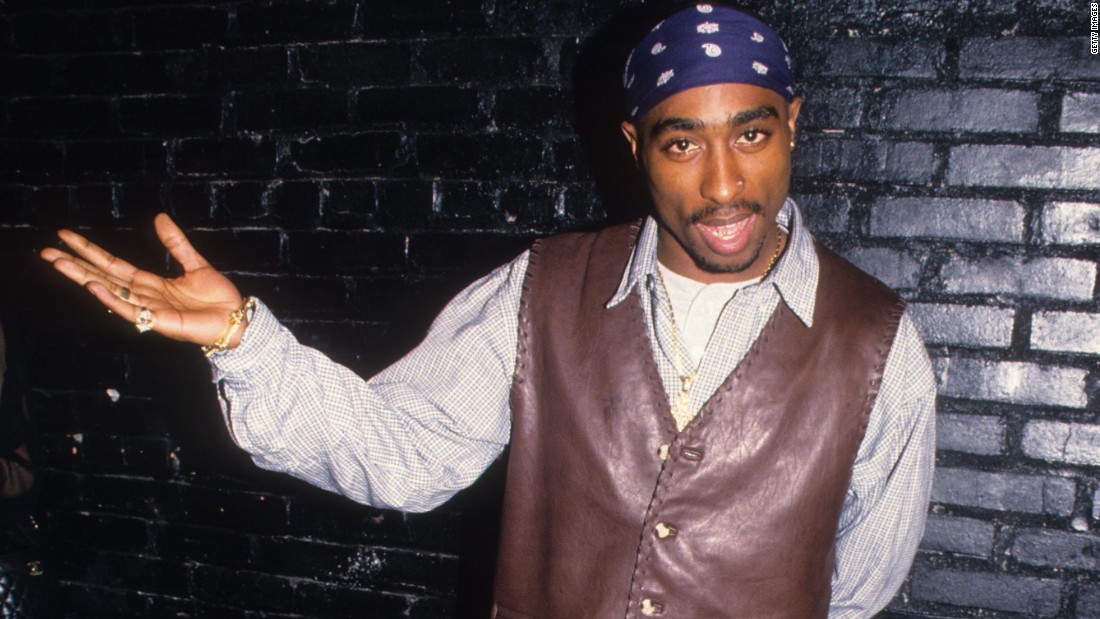Tupac Death Age: The Lasting Legacy Of An Iconic Artist
The death of Tupac Shakur remains one of the most significant and mysterious events in music history. On September 13, 1996, the legendary rapper passed away at the age of 25, leaving behind a legacy that continues to inspire millions worldwide. His sudden death shocked fans and the music industry, raising questions that remain unanswered to this day.
Tupac's life and career were marked by both brilliance and controversy. As one of the most influential figures in hip-hop, his music addressed social issues, inequality, and personal struggles, resonating deeply with listeners across generations. Despite his untimely death, Tupac's influence continues to shape modern music and culture.
This article delves into Tupac's death, his age at the time, and the circumstances surrounding this tragic event. We'll also explore his lasting impact on the world and examine why his story continues to captivate audiences more than two decades later.
Read also:Exploring The Future Of Energy Fintechzoomcom Natural Gas Insights
Table of Contents
- Biography of Tupac Shakur
- Tupac Death Age
- The Circumstances Surrounding Tupac's Death
- The Investigation and Conspiracy Theories
- Tupac's Lasting Legacy
- The Impact of Tupac's Music
- Tributes and Memorials
- The Role of Tupac's Family
- Conclusion
- Sources
Biography of Tupac Shakur
Tupac Amaru Shakur, born on June 16, 1971, in East Harlem, New York City, was an American rapper, actor, and activist whose life was as complex as his art. Growing up in a turbulent environment shaped by poverty, activism, and systemic racism, Tupac developed a profound understanding of societal issues, which he later channeled into his music.
Early Life and Family Background
Tupac's parents were both active members of the Black Panther Party. His mother, Afeni Shakur, played a crucial role in shaping his worldview and commitment to social justice. Despite facing numerous challenges, including financial difficulties and legal battles, Afeni ensured that Tupac received an education and exposure to the arts.
Tupac's Career Timeline
Tupac embarked on his music career in the late 1980s, quickly rising to fame with his raw and powerful lyrics. Some of his most notable albums include "2Pacalypse Now," "All Eyez on Me," and "Me Against the World." His acting career also flourished, with memorable performances in films such as "Juice" and "Above the Rim."
Biographical Data
| Full Name | Tupac Amaru Shakur |
|---|---|
| Date of Birth | June 16, 1971 |
| Place of Birth | New York City, USA |
| Occupation | Rapper, Actor, Activist |
| Date of Death | September 13, 1996 |
| Age at Death | 25 years old |
Tupac Death Age
Tupac Shakur tragically died at the age of 25, cutting short a career that had already made an indelible mark on the world. His death occurred on September 13, 1996, after he was shot in a drive-by shooting in Las Vegas, Nevada. The event shocked the music industry and left fans reeling, as the rapper was still in the prime of his career.
Age and Its Significance
At the time of his death, Tupac was only 25 years old, a fact that underscores the immense potential he had yet to fulfill. Many believe that his untimely passing deprived the world of further groundbreaking music and activism. His age at death has become a poignant reminder of the fragility of life and the impact of violence.
Memorializing His Age
Throughout the years, fans and artists have commemorated Tupac's life by highlighting his age at death. Memorials, tributes, and documentaries often emphasize the brevity of his life, serving as a call to action for addressing the issues he championed during his career.
Read also:Understanding Point All Quality A Comprehensive Guide To Excellence
The Circumstances Surrounding Tupac's Death
Tupac's death was the result of a drive-by shooting that occurred in the early hours of September 7, 1996, in Las Vegas. The rapper was riding in a car driven by Suge Knight, the CEO of Death Row Records, when a white Cadillac pulled up alongside them and fired multiple shots.
Details of the Shooting
Tupac was hit multiple times and was rushed to the University Medical Center of Southern Nevada. Despite receiving extensive medical treatment, he succumbed to his injuries six days later. The incident remains one of the most infamous in music history, with questions about motive and perpetrators still lingering.
Key Players Involved
- Suge Knight: The CEO of Death Row Records, who was driving the car during the shooting.
- Notorious B.I.G.: Tupac's rival at the time, whose involvement in the incident has been speculated but never proven.
- Law Enforcement: The investigation into the shooting remains open, with no arrests made to date.
The Investigation and Conspiracy Theories
Following Tupac's death, law enforcement launched an extensive investigation into the shooting. Despite numerous leads and theories, the case remains unsolved. Over the years, various conspiracy theories have emerged, fueling speculation about the true circumstances surrounding his death.
Official Investigation
Las Vegas police and the FBI have conducted numerous investigations into the shooting, interviewing witnesses and reviewing evidence. However, the case has been hampered by a lack of concrete evidence and conflicting testimonies.
Conspiracy Theories
Some theories suggest that Tupac's death was orchestrated by rival gangs, while others point to involvement by law enforcement or even his own associates. One of the most persistent rumors is that Tupac faked his death, though no credible evidence supports this claim.
Tupac's Lasting Legacy
Tupac's influence extends far beyond his music. His commitment to social justice, equality, and empowerment continues to inspire millions worldwide. Through his art, Tupac addressed issues such as poverty, racism, and police brutality, making him a voice for the marginalized and oppressed.
Posthumous Achievements
Since his death, Tupac has been posthumously honored with numerous awards and accolades. His music remains popular, with albums like "All Eyez on Me" and "2Pacalypse Now" consistently ranking among the greatest rap albums of all time.
Impact on Modern Music
Tupac's influence can be seen in the work of countless artists across genres. His ability to blend personal storytelling with social commentary has set a standard for authenticity and depth in modern music.
The Impact of Tupac's Music
Tupac's music remains a testament to his genius and vision. His ability to tackle complex issues while maintaining relatability has ensured his place as one of the greatest artists in history. Songs like "Dear Mama," "California Love," and "Changes" continue to resonate with audiences worldwide.
Themes in His Music
- Social Justice: Tupac frequently addressed issues such as racism, inequality, and systemic oppression.
- Personal Struggles: Many of his songs explore his own experiences with poverty, addiction, and relationships.
- Empowerment: Tupac's music often serves as a call to action for marginalized communities.
Enduring Popularity
Tupac's music continues to gain new fans with each passing year. His ability to connect with listeners on a personal level ensures that his legacy will endure for generations to come.
Tributes and Memorials
Since Tupac's death, numerous tributes and memorials have been created in his honor. These efforts aim to celebrate his life and legacy while keeping his message alive for future generations.
Memorials
- Tupac Amaru Shakur Center for the Arts: Founded by his mother, Afeni Shakur, this center promotes arts education and community engagement.
- Statues and Murals: Various cities around the world have erected statues and murals in honor of Tupac.
Annual Events
Each year, fans and organizations host events to commemorate Tupac's life and contributions. These gatherings often include performances, discussions, and educational workshops.
The Role of Tupac's Family
Tupac's family, particularly his mother Afeni Shakur, has played a pivotal role in preserving his legacy. Through their efforts, they have ensured that Tupac's message of hope and empowerment continues to inspire millions.
Afeni Shakur's Contributions
Afeni Shakur dedicated much of her life to honoring her son's memory. She established the Tupac Amaru Shakur Center for the Arts and worked tirelessly to promote his music and message.
Family Involvement in Projects
Tupac's family has been involved in various projects, including documentaries, albums, and films, that aim to shed light on his life and career. Their involvement ensures that Tupac's story is told authentically and with respect.
Conclusion
Tupac Shakur's death at the age of 25 marked a tragic loss for the music world and beyond. Despite his untimely passing, his legacy continues to inspire millions, addressing issues that remain relevant today. His music, activism, and personal journey have left an indelible mark on history, ensuring that his voice will never be silenced.
We encourage readers to explore Tupac's music and message further, as it offers valuable insights into the struggles and triumphs of marginalized communities. Share this article with others and engage in discussions about the issues Tupac championed. Together, we can honor his memory by continuing the work he began.
Sources

